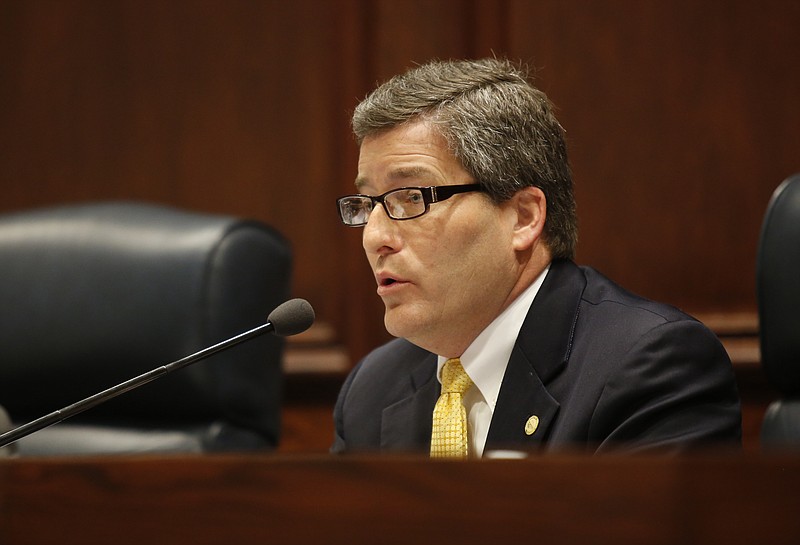One Hamilton County commissioner wants to put $100,000 in so-called discretionary funds back into the county's savings account. Meanwhile, four others want to spend about half that amount on pet projects and nonprofit organizations.
Commissioner Joe Graham, who represents District 6, proposed a resolution Wednesday to put his share of a combined $900,000 commission discretionary fund back into county coffers.
"I'm just asking my fellow commissioners to help me do the right thing here, and maybe some of you will want to do the same," Graham said.
But four other commissioners - Randy Fairbanks, Warren Mackey, Sabrena Smedley and Chester Bankston - are looking to spend a combined $40,000.
The funds, which conservatives and government spending critics have called political slush money, were a point of contention in June, when Mayor Jim Coppinger left the near $1 million budget fixture out of the 2016 fiscal plan.
But a bloc of six commissioners quickly voted to add the funds to the budget from the county's fund balance, or "rainy day" fund. Coppinger vetoed the amended budget, but the same bloc of commissioners overruled him.
Commissioners Fairbanks, Tim Boyd, Smedley, Bankston, Jim Fields and Mackey voted to override Coppinger's veto.
Greg Beck, Marty Haynes and Graham were the only ones to not support the override. But only Graham voted against the ultimately amended budget.
On Wednesday, Graham said he plans to return the money to the fund balance, but he will pledge the remainder of his commission travel and expense money to projects in his district.
Commissioners get $12,500 a year for expenses, on top of their $21,902 salaries.
Graham now has about $65,000 in expense money, and he will receive another $25,000 before his term ends. He's pledging all of that to district projects so he doesn't "punish his district," he said.
Meanwhile, Fairbanks is asking commissioners to approve three different expenses totaling $28,000.
Fairbanks said he wants to give $5,000 to the Dallas Bay Volunteer Fire Department to help pay for a new fire truck; $10,000 to Orange Grove Center to help pay for recycling equipment; and $13,000 to the Mowbray Volunteer Fire Department for equipment.
Mackey is seeking to give the East Lake Neighborhood Association $1,800 in taxpayer funds "to help with a festival."
Smedley is seeking to give the city of Collegedale - which has its own tax base - $10,000 to refurbish a U.S. Navy fighter jet bound for the Veterans Memorial Park of Collegedale. Bankston previously gave $10,000 from his own pot for the plane renovation.
And Bankston is pledging $1,000 in county money to The Next Door, a nonprofit organization that helps incarcerated women find work when they get out of prison.
Coppinger on Wednesday lauded Graham for his effort.
"Obviously, I believe that Commissioner Graham did the honorable thing by [seeking to] return the Hamilton County taxpayers' money back to the rainy day fund. And I applaud Commissioner Graham for continuing to stand for fiscally responsible principles," Coppinger said.
Commissioner Boyd on Wednesday defended discretionary spending, saying that he's used it to leverage private dollars and make investments in the community, citing a discretionary donation he made in 2011 to a program that helps get nonviolent felons work and counseling.
He claimed Wednesday the program has saved $3.9 million in deferred jail costs.
"These discretionary funds can be realized in real tangible dollars, not to mention quality of life," Boyd said.
The commissioners will vote next week on the expenditures at their regular meeting.
Contact staff writer Louie Brogdon at lbrogdon@timesfreepress.com, @glbrogdoniv on Twitter or at 423-757-6481.
